Editor-in-chief of Tiếng Dân, a courageous journalist.
Mr. Huynh was born on October 1, 1876, in Quang Nam . He passed the provincial examination at the age of 21 and the imperial examination for the title of Third-Class Doctor of Literature in the year of Giap Thin (1904) at the Thua Thien examination center, but refused to become an official and instead joined the patriotic movement. He was exiled to Con Lon (Con Dao) by the French colonialists for 13 years. After his release, he was invited to become an official by the Commissioner of Central Vietnam, Pasquier, but he resolutely refused.
Mr. Huynh was the editor-in-chief of the newspaper Tiếng Dân from 1927 to 1943.
On August 10, 1927, the first issue of Tiếng Dân newspaper was published, with Mr. Huỳnh Thúc Kháng becoming the editor-in-chief and managing editor. The newspaper was based in Huế . Tiếng Dân advocated opposition to the protectorate government. Most of the editorials published in Tiếng Dân were written by Mr. Huỳnh Thúc Kháng with the aim of stimulating patriotism among readers. Tiếng Dân was born under extremely difficult circumstances, at a time when the people of Central Vietnam were eagerly awaiting the appearance of a reputable Vietnamese-language newspaper. The newspaper measured 58 x 42 cm and was published twice a week.
Although it was published later than newspapers in the North and South, the newspaper Tiếng Dân (Voice of the People) played a significant political role. Mr. Huỳnh Thúc Kháng explained the meaning of "Tiếng Dân" in the December 24, 1926 issue of La Tribune Indochinoise as follows: "It represents the joy, the sorrow, and the longing cherished in the hearts of millions of our compatriots. The people are the foundation of the nation. Tiếng Dân closely follows the issues within the country. If the government truly understands the deep aspirations of the people, why should it treat Tiếng Dân unfairly as it has treated several other newspapers that have recently been launched and shut down? This newspaper truly deserves to bear the name Tiếng Dân, because in reality, it is through the press that the voice of the people can be expressed."
Many times the French colonial censorship office forced the editorial office to make corrections according to their wishes, but Mr. Huynh resolutely refused, saying: "Either publish the original text or discard it; not a single word will be changed."
Once, the newspaper Tiếng Dân published an article about the French Deputy Commissioner of Da Lat severely insulting a Vietnamese official with harsh criticism. The Hue Consulate immediately requested the Da Lat Commissioner to report on the incident. The Da Lat Commissioner wrote to Mr. Huynh, asking him to reveal the name of the author of the article. Mr. Huynh replied, "If Tiếng Dân newspaper published false information, you can prosecute me, but I cannot tell you the name of the writer." Following this incident, the Hue Consulate issued a circular prohibiting French officials from using disrespectful language towards Vietnamese officials.
Throughout his journalistic career, Mr. Huynh affirmed: "If I don't have the right to say everything I want to say, then at least I have the right not to say what I am forced to say."
Journalists from Tuyen Quang visit the tomb of Mr. Huynh.
The newspaper Tiếng Dân was a political publication, but Mr. Huynh did not forget to publish selected poems and essays, often by Phan Bội Châu, Phan Tây Hồ, Bích Khê, and many other renowned writers. The censorship regime at the time required all articles to be translated into French in three copies and sent to the French Legation before printing. The French Governor-General at the time could not accept Mr. Huynh's "unruly" attitude and, on April 21, 1943, issued a decision to shut down Tiếng Dân.
For journalists and writers in a colonial regime without freedom of the press, the struggle of Mr. Huynh and his newspaper, Tiếng Dân, was truly courageous, driven by patriotism and love for their people. With 1766 issues, Tiếng Dân contributed to nurturing the flame of patriotic fervor in the hearts of the Vietnamese people.
The President's lifetime tenure is for the people.
Following the success of the August Revolution in 1945, Mr. Huynh was already 70 years old. At the invitation of President Ho Chi Minh, he joined the Coalition Government, serving as Minister of the Interior. During President Ho Chi Minh's visit to France, he was entrusted with the duties of Acting President of the Democratic Republic of Vietnam, with the instruction to "adapt to changing circumstances while maintaining unwavering principles." Not betraying President Ho Chi Minh's trust, Mr. Huynh Thuc Khang fulfilled the mission entrusted to him by President Ho Chi Minh.
The tomb of Mr. Huynh Thuc Khang is located on Thien An Mountain, Quang Ngai.
In late 1946, he served as a special envoy of the Government working at the Southern Central Vietnam Resistance Administrative Committee based in Nghia Hanh, Quang Ngai province. On April 21, 1947, Mr. Huynh Thuc Khang passed away due to a serious illness, at the age of 71.
In the letter announcing the state funeral of Mr. Huynh Thuc Khang, President Ho Chi Minh wrote: “Mr. Huynh was a man of vast learning, unwavering determination, and high moral character… Mr. Huynh was a man who was not swayed by wealth, not discouraged by poverty, and not intimidated by power. Throughout his life, Mr. Huynh did not care about fame or fortune, did not crave wealth, and did not aspire to be an official. Throughout his life, Mr. Huynh only strived for the people's freedom and the nation's independence.”
Later, in 1949, President Ho Chi Minh named the first and only journalism training course in Thai Nguyen during the resistance war after him, to train and build a team of revolutionary Vietnamese journalists. The opening speech on April 4, 1949, published in the special issue of Cuu Quoc newspaper on September 12, 1949, in Viet Bac, included the passage: “Bearing the name of Mr. Huynh Thuc Khang is to remember and emulate this patriotic veteran and also a renowned and experienced journalist, setting an example for the trainees in diligent learning, progressive organizational skills, and unwavering courage – fundamental qualities for a journalist.”
Our colleagues in Quang Ngai told us that Mr. Huynh's tomb is an annual destination for journalists on June 21st or the anniversary of his death. We consider ourselves fortunate to have visited the Huynh Thuc Khang Journalism Training Class in Dai Tu, Thai Nguyen last month; and now to have the opportunity to pay our respects to him in the land of Mount An and Tra River.
On the occasion of the 100th anniversary of Vietnamese Revolutionary Journalism, journalists today remember the courageous journalist Huynh Thuc Khang – a man who always upheld an unwavering and indomitable spirit in the face of hardship and difficulty, working for the benefit of the people, not pursuing fame or money. As a veteran patriot, he set a shining example of patriotism, dedicating his entire life to the people and the nation.
Source: https://baotuyenquang.com.vn/nha-bao-huynh-thuc-khang-212810.html



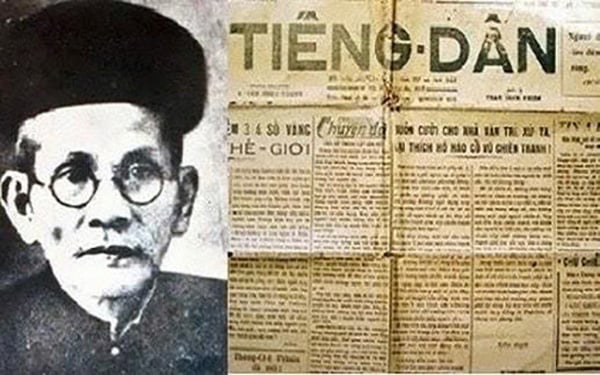
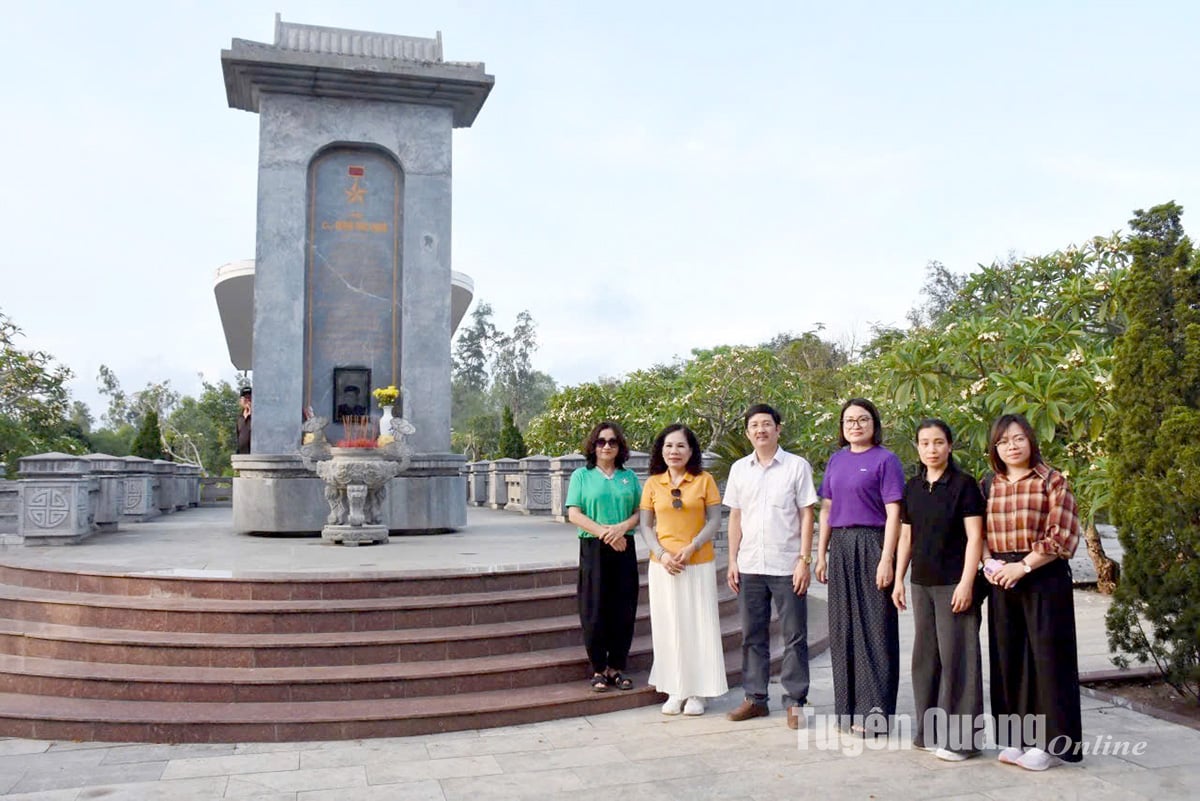
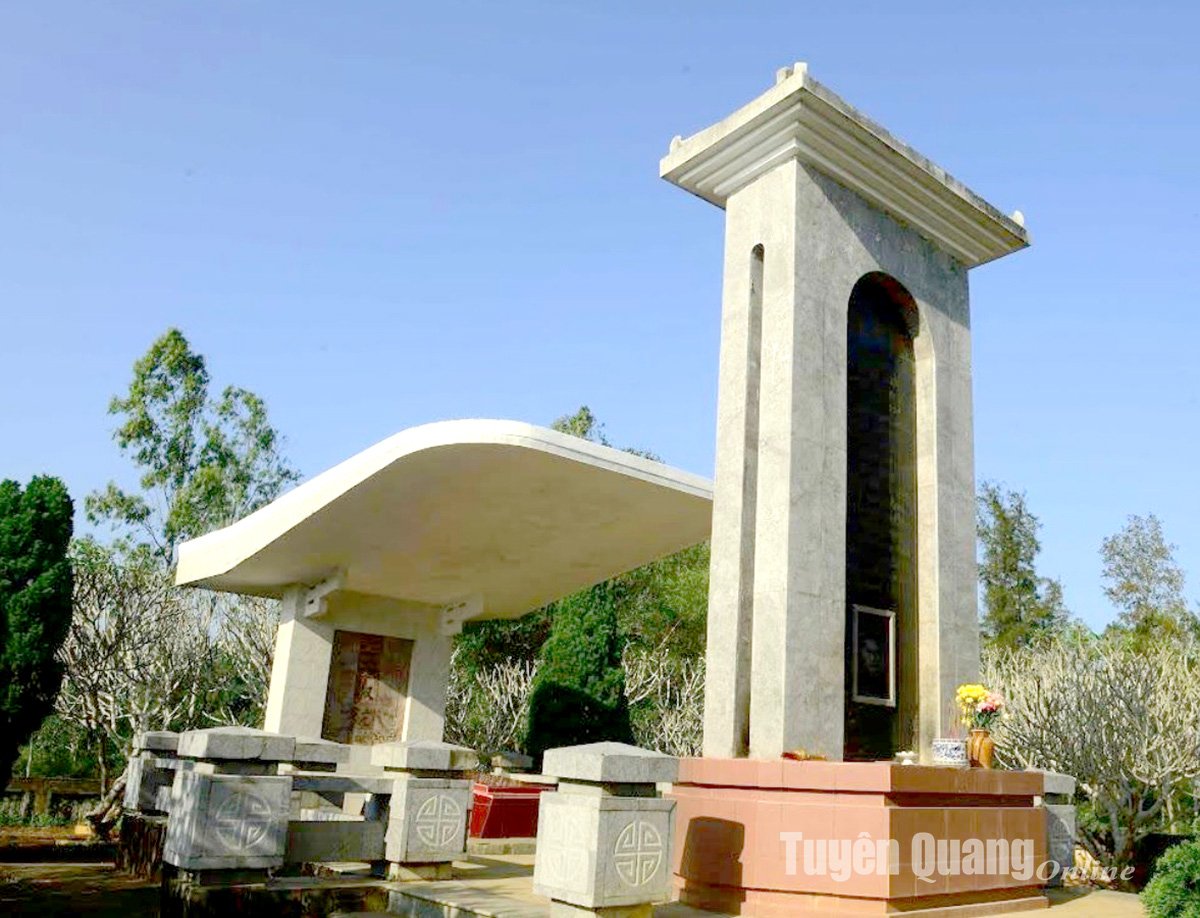




























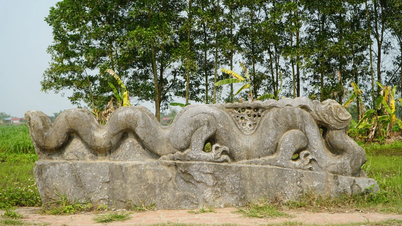







































































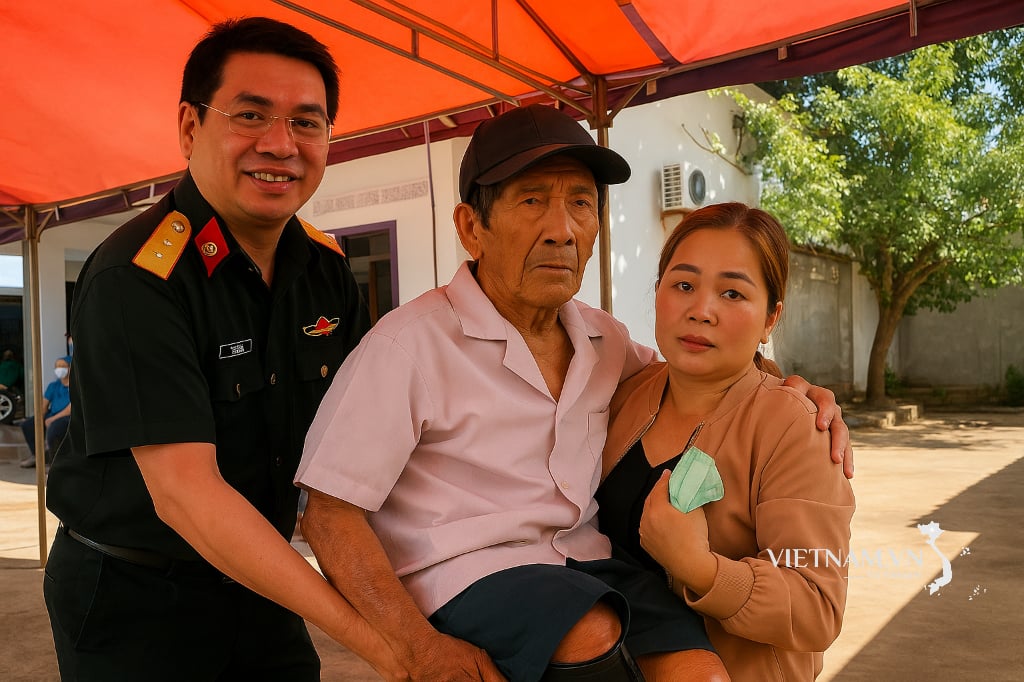

Comment (0)